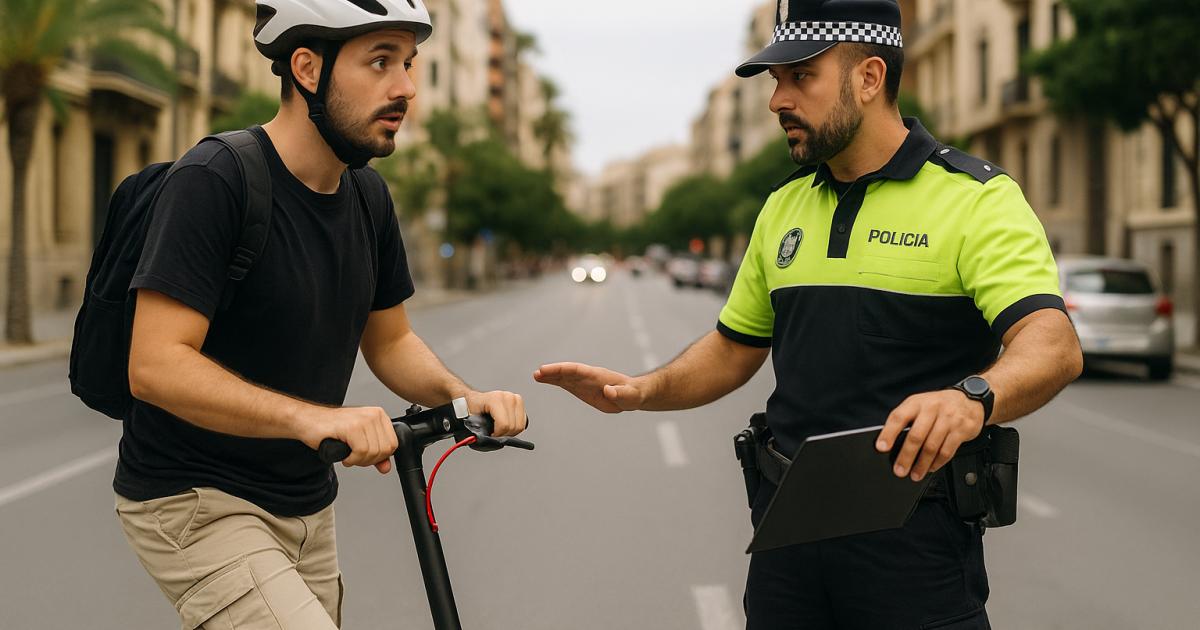
New regulations for electric scooters in Spain: what you need to know in 2025
Electric scooters have become an integral part of Spain's urban landscape - fast, comfortable and environmentally friendly. However, their use is subject to increasingly detailed regulations. New national regulations went into effect in 2025, and some cities - including Barcelona, Alicante and Torrevieja - have tightened their own rules. Find out what the penalty is for riding on the sidewalk and why a scooter without a certificate can be stopped by police.
What is a scooter according to the law?
Spain's Directorate General of Traffic (DGT) defines an electric scooter as a one-person vehicle powered solely by electricity, reaching speeds of 6 to 25 km/h. The official category is VMP - Vehículo de Movilidad Personal (personal mobility vehicle).
Applicable national regulations (DGT)
Starting in January 2024, all electric scooters sold in Spain must have a DGT approval certificate. Models bought earlier can be used until January 2027 - after that date only scooters with the certificate will be legal on public roads.
Key principles:
- Prohibit driving on sidewalks, pedestrian zones, highways, tunnels and expressways.
- Permitted routes: urban roadways with a speed limit of 30 km/h and designated bike lanes.
- Maximum speed: 25 km/h.
- Helmet: increasingly mandatory - although nationwide not yet for everyone, many cities (e.g. Barcelona) already require it. DGT plans to make it mandatory in all cities.
- Minimum age: 16 (often introduced by local regulations).
- Mandatory equipment: lights, bell, front and rear brakes, battery indicator, reflectors and approval markings (serial number, manufacturer, year, top speed).
- Ban driving with a passenger, phone in hand and headphones.
DGT announces that mandatory liability insurance for scooter owners may also come into effect from January 2026.
Local regulations: every city, every rule
Barcelona - full rigor and high fines
From February 1, 2025, Barcelona has introduced some of the strictest regulations in the country:
- As of February 1, 2025, Barcelona has introduced some of the strictest regulations in the country:
Driving ban:
- on sidewalks and pedestrian areas,
- on streets with a speed limit of 50 km/h (i.e., most major urban arteries),
- in tunnels and pedestrian passages.
**Mandatory equipment: lights, bell, reflectors - users must be highly visible, especially after dark
Mandates:
- €100 for not wearing a helmet,
- up to €500 for driving in an unauthorized place or with a passenger.
The city is intensifying inspections especially in tourist areas and downtown.
Alicante - scooter police offensive
In the spring of 2025, local police conducted an intensive inspection campaign - more than 300 fines in two weeks.
Prohibition of driving on: sidewalks, promenades, beaches (Postiguet, Urbanova), pedestrian zones, busways, streetcar platforms, carril-bici paths.
- The fines range up to 500 euros.
Permitted speeds:
- 25 km/h on the roadway,
- 20 km/h on bicycle paths,
- 10 km/h on dirt walking trails.
Helmet required locally, even if national regulations do not impose it.
IN TRAM: only 2 scooters per streetcar, must be folded, only in the last carriage.
Torrevieja - education and control
The city focuses on prevention and education, but also enforces local regulations:
- Minimum age: 16 (or younger with AM category).
- Ban driving on sidewalks, in parks, pedestrian areas.
- Prohibition of phone and headphone use while driving.
- Helmet and liability insurance are strongly recommended.
- Fines from €80 to €200 - for lack of lights, carrying a passenger, driving on the sidewalk, among other things.
The city is conducting information campaigns in schools and the media.
Summary: what do you need to keep in mind?
| Requirements/Prescription | National | Barcelona | Alicante | Torrevieja |
|---|---|---|---|---|
| Minimum age | 16 years | 16 years | 16 years (or AM) | 16 years (or AM) |
| Helmet | Recommended | Mandatory | Mandatory | Recommended |
| The ban on driving on the sidewalk | Yes | Yes | Yes | Yes |
| Maximum speed | 25 km/h | 25 km/h | 25 km/h | 25 km/h |
| Liability Insurance | Planned 2026 | Recommended | Recommended | Recommended |
| Mandates Up to | 500 € | 100-500 € | 100-500 € | 80-200 € |
| Transport in public transport | No regulations | Limited | Lack of regulations | Lack of regulations |
| driving with headphones / phone | Forbidden | Forbidden | Forbidden | Forbidden |
Practical tips
- Make sure your scooter has a DGT certificate - you won't be able to use it legally after 2027 without one.
- Wear a helmet - even if it is not mandatory everywhere, it increases your safety.
- Avoid driving on sidewalks and pedestrian zones - the most common reason for fines.
- Equip yourself with lights, a bell, reflectors and working brakes.
- Always check local regulations - they can vary from city to city.
What's next?
The Ministry of Transportation is considering further obligations, including registration of scooters, license plates and full OC liability. If you ride a scooter regularly - watch for changes and adjust in time.







